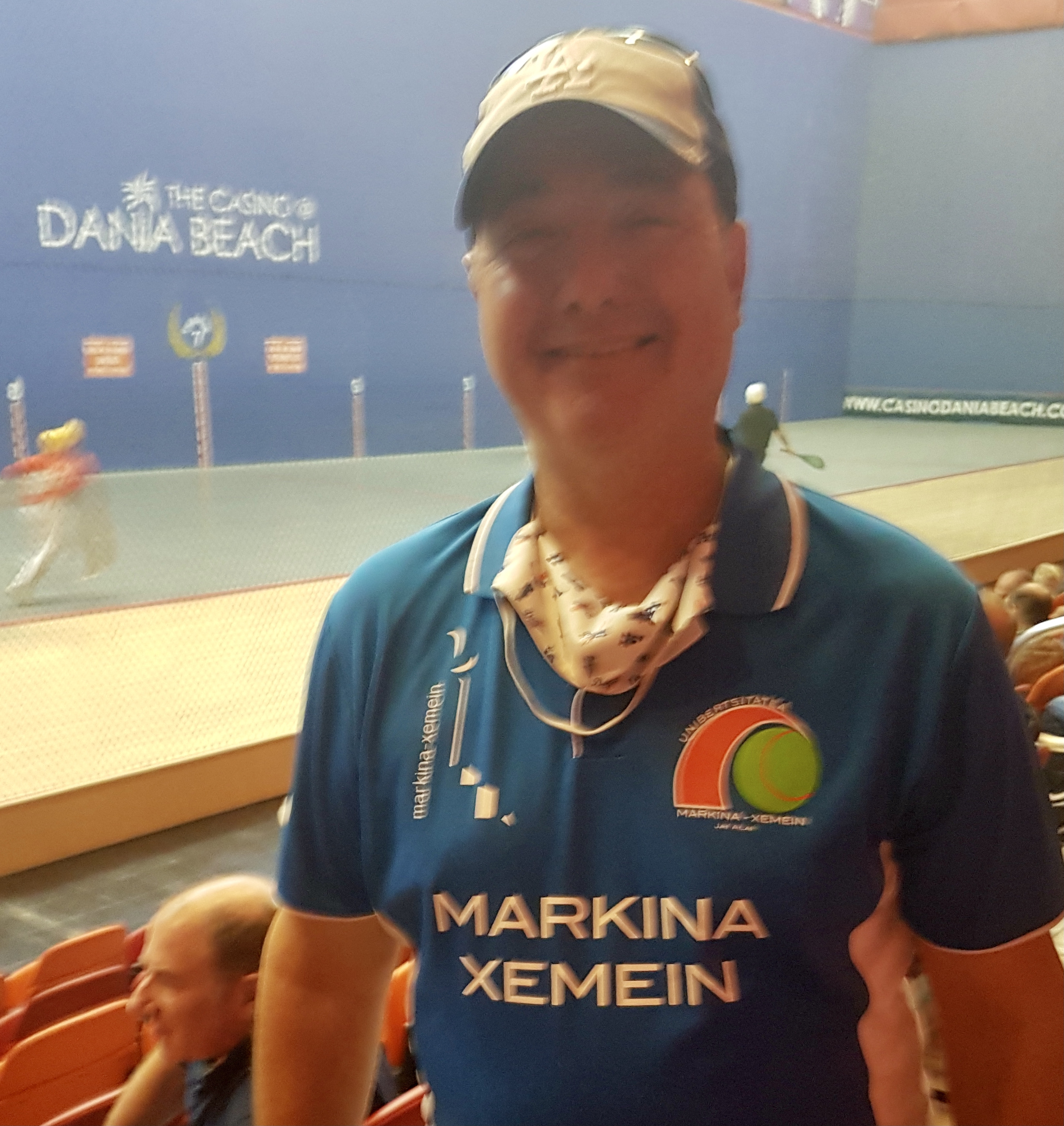Last days at Dania Jai-Alai Fronton. He approached me and introduced himself as Loren Harris. Fifteen minutes of conversation in a more than correct Spanish were enough for me to realize that I was in front of an overwhelming personality and a contagious enthusiasm. I immediately realized that I was not in the presence of an unconditional jai-alai aficionado. More like an apostle of jai-alai. Someone who has been entrusted with a mission: to spread the Basque sport among young people. In Baja California or Cancun (Mexico). Or even in Magic City, a version of jai-alai that Loren Harris was betting on.
We agreed to talk, I would send him a questionnaire and he would tell me about his achievements and his projects.
Stu Neiman is currently an executive committed to Magic City. He is part of that project and believes strongly in it.
«I believe it is possible to protect the legacy without making it become a legend,» he told me in a message.
«Food for thought”.
After nearly 100 years of traditional jai-alai in Florida, the sport is history.
What is left after a century, what is the legacy part and what is the legend part?
Legacy understood as something transmitted by or received from a predecessor or predecessor.
What is the legacy received from the jai-alai? How to protect it?
How to establish the dividing line between legacy and legend?
Starting with the latter, the construction of the legend, we have many elements at hand to turn the jai-alai into a breeding ground for the legend.
Stories of old pelotaris, tales of legendary, exotic, frontons. By drawing on newspaper archives, testimonies of veterans, photographs on social networks, one’s own experiences embellished with fantastic or marvelous elements, it is possible to gather more than enough material to fatten the legendary part of the history of jai-alai.
It is more accessible to build the legend than to protect the legacy.
It is here, I believe, where Stu Neiman puts his finger on the problem, talking about protecting the legacy without falling into the trap of the legend.
Almost 100 years of traditional jai-alai in Florida have not left a solid legacy as would correspond to the presence of the Basque sport.
However, something has been left behind, a certain linger in the empty glass.
Interacting the last few days at the fronton in Dania with several jai-alai aficionados, I realized that it has left a modest legacy. The amateur fronton in Saint Petersburg, whose alma mater is Jeff Conway. The aforementioned work on the part of Loren Harris.
It was a shock to learn that Loren Harris had passed away, a torpedo in the waterline of what «protecting the legacy» is all about. Because that’s what Loren did: «protect the legacy».
To build legends, we took care of others.
Loren Harris and Jeff Conway are men of action, protectors of the legacy. Just like the Magic City project.
Magic City has not been my cup of tea. I’d have seen it more like an aberration. However, with the passage of time, listening to other opinions and putting aside prejudices more typical of a Taliban mind. I am aware that the subject has a lot of crumbs, more than it seems at first glance. I would even go so far as to say that it is great news.
No one in their right mind will defend a comparison with the traditional jai-alai. That is not the point. Management should, for their sake, differentiate Magic City by calling it Small Court Jai-Alai, or something similar. That’s my opinion.
Magic City is indeed defensible as part of a legacy adapted to the new times. No one knows, how far this project will go. The managers believe in it, the owners are putting their money on the line.
What fascinates me about this project is what it embodies. The innovative spirit that has allowed the traditional jai-alai to survive for 150 years. What in economics they call «creative destruction».
One model, the traditional jai-alai in this case, goes down the drain and, as a result of this crisis, Magic City emerges.
As if by magic? Who knows.
Fifty years ago, when the owners were still making money, a project like Magic City would have been unthinkable. The industry had to collapse and decoupling had to materialize. And as a consequence of the crisis, the existing legacy makes it possible to give a chance to a version based on traditional jai-alai. Fascinating.
A laboratory bet, but with private money, without having to resort to public money, with all the dependence and servitude that the latter entails.
I think I understand better what Stu Neiman means when he talks about “protecting the legacy without falling into legend”.
Loren Harris was another who felt the same way and worked in his own way. Men of action.
May your efforts not be in vain.


